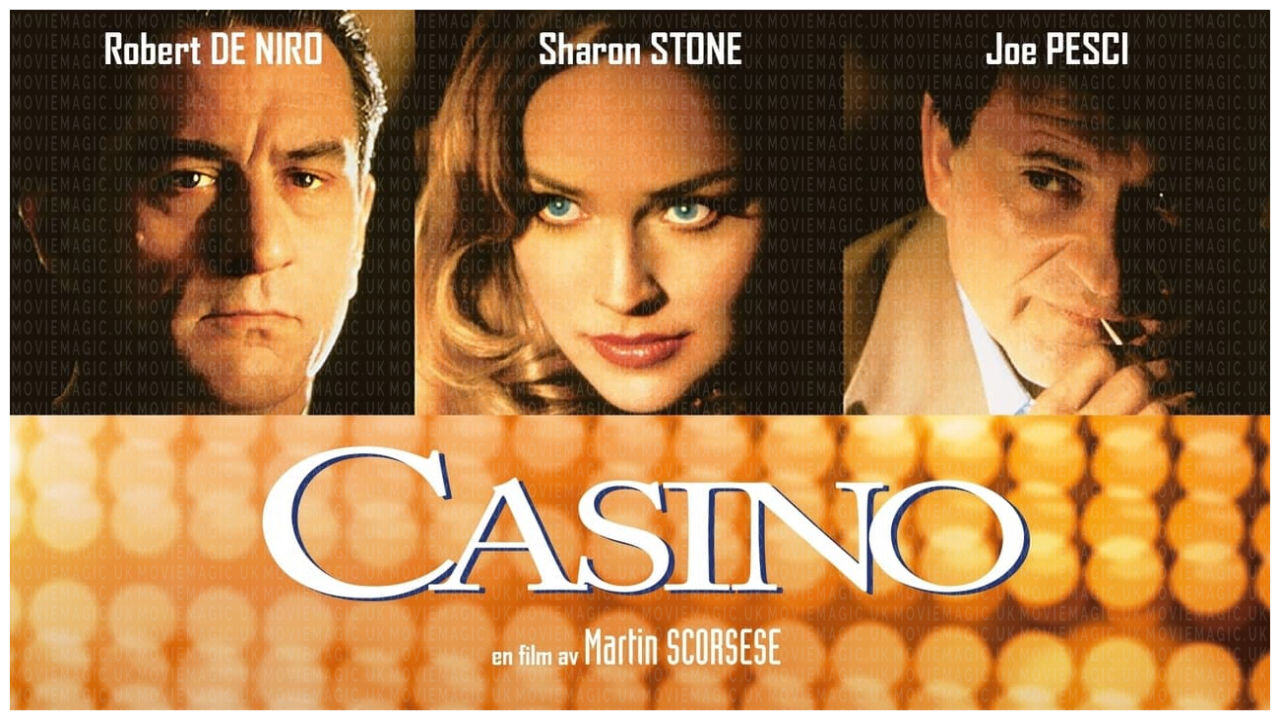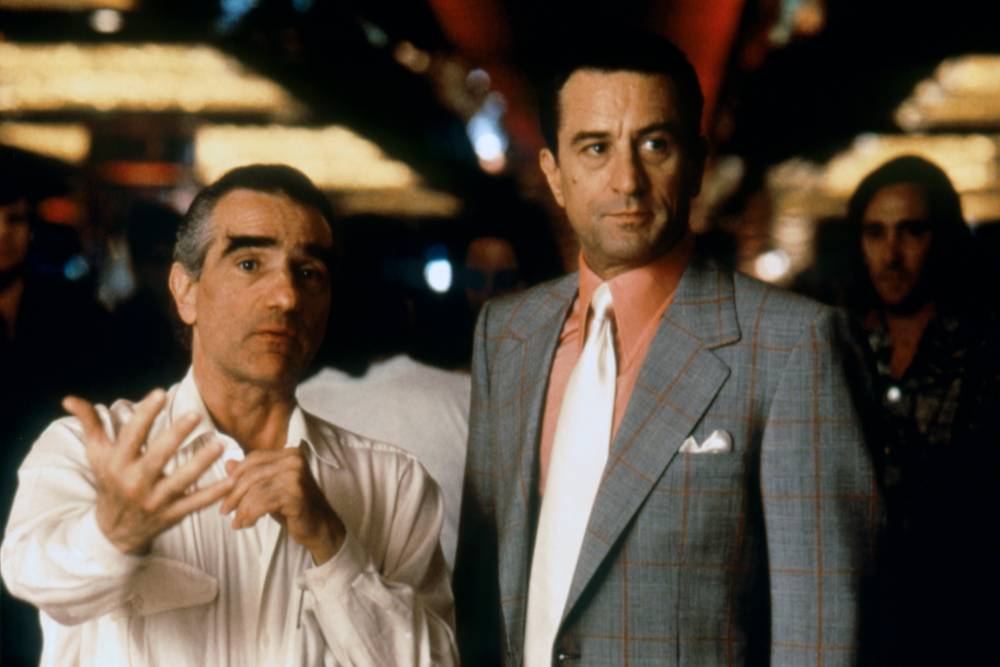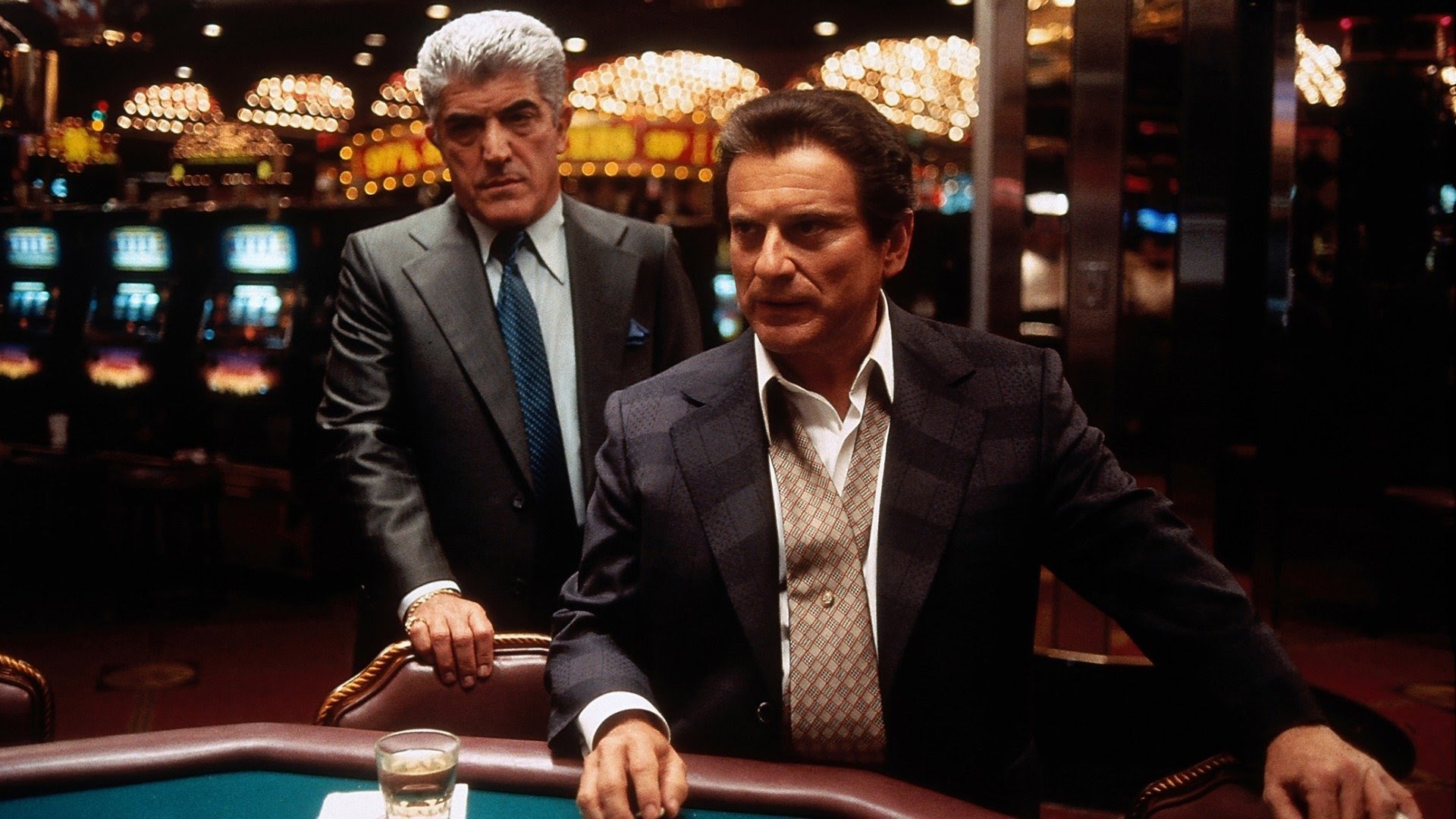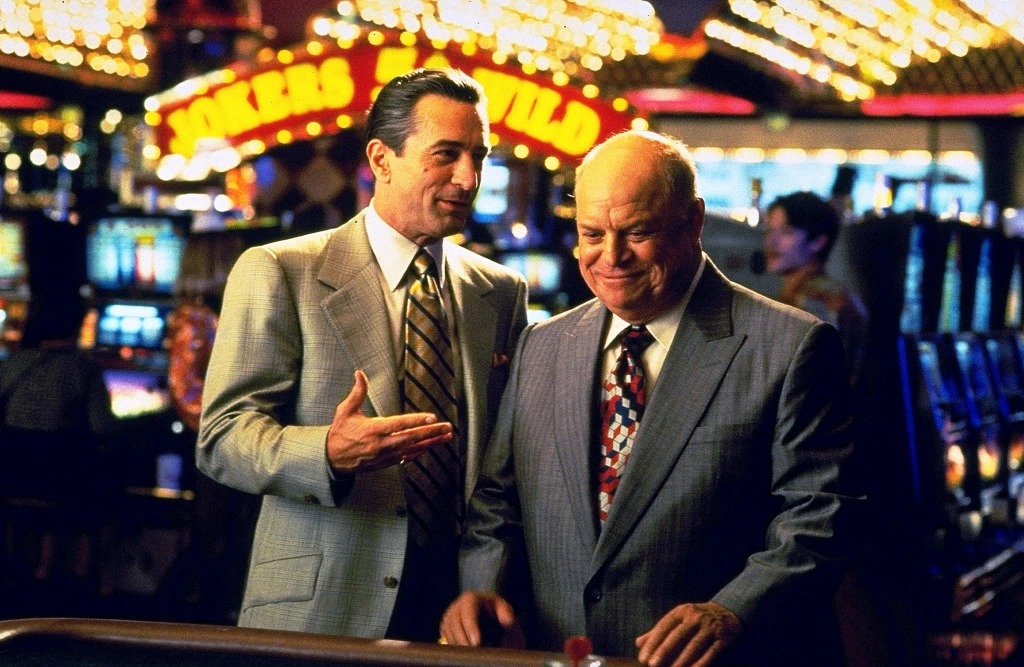Casino (1995)

“Casino” is a 1995 American crime drama film directed by Martin Scorsese, renowned for his skillful storytelling and cinematic mastery. Based on the non-fiction book Casino: Love and Honor in Las Vegas by Nicholas Pileggi, who co-wrote the screenplay with Scorsese, the film presents a vivid portrayal of the corrupt and violent underworld of Las Vegas during the 1970s and 1980s. With a star-studded cast featuring Robert De Niro, Sharon Stone, Joe Pesci, and several others, “Casino” has become one of the most iconic films in the crime genre.
The story of Casino revolves around Sam “Ace” Rothstein, played by Robert De Niro, a skilled sports handicapper recruited by the mob to oversee the operations of a Las Vegas casino. His work is complicated by his volatile relationship with his wife, Ginger McKenna (Sharon Stone), and his interactions with Nicky Santoro (Joe Pesci), a violent enforcer with deep connections to organized crime. The film unfolds through a series of flashbacks, showcasing how greed, betrayal, and ambition slowly lead to the downfall of these individuals and the collapse of the empire they built.
At its core, Casino explores themes of corruption, power, and the consequences of living a life controlled by greed. The casino serves as a metaphor for the larger American dream, where everything can be bought, but the price of success is often one’s moral compass. Sam Rothstein’s rise to power in Las Vegas is marked by his meticulous control of the casino, but his inability to escape the influence of organized crime leads to his eventual demise. Similarly, Ginger’s lust for wealth and Nicky’s ruthless behavior ultimately lead them down a path of destruction.

The performances in Casino are exceptional, with each actor delivering a deeply nuanced portrayal of their character. Robert De Niro’s portrayal of Sam Rothstein, the methodical and calculating casino manager, is compelling. Sharon Stone, in her role as Ginger, delivers a standout performance that earned her an Academy Award nomination, perfectly capturing the complexity of a woman torn between love, ambition, and addiction. Joe Pesci’s portrayal of the violent and unpredictable Nicky Santoro is equally gripping, making him one of the most memorable characters in the film.

Martin Scorsese’s direction in Casino is nothing short of brilliant. The film is filled with dynamic camera work, long tracking shots, and meticulous attention to detail, which enhance the storytelling. Scorsese’s use of music is also noteworthy, as he carefully selects songs that complement the mood of each scene, adding to the film’s intense atmosphere. The director’s distinctive style creates an immersive experience, drawing viewers into the chaotic world of Las Vegas in the 1970s and 1980s.

In conclusion, Casino is a powerful and captivating film that masterfully combines crime, drama, and historical context to tell a story of ambition, betrayal, and the consequences of a life lived in the shadow of organized crime. With stellar performances, a compelling narrative, and Scorsese’s signature directorial style, the film remains a timeless classic in the crime genre. Casino is not only a brilliant depiction of Las Vegas’ dark underbelly but also a poignant exploration of the human condition when driven by power and greed.











